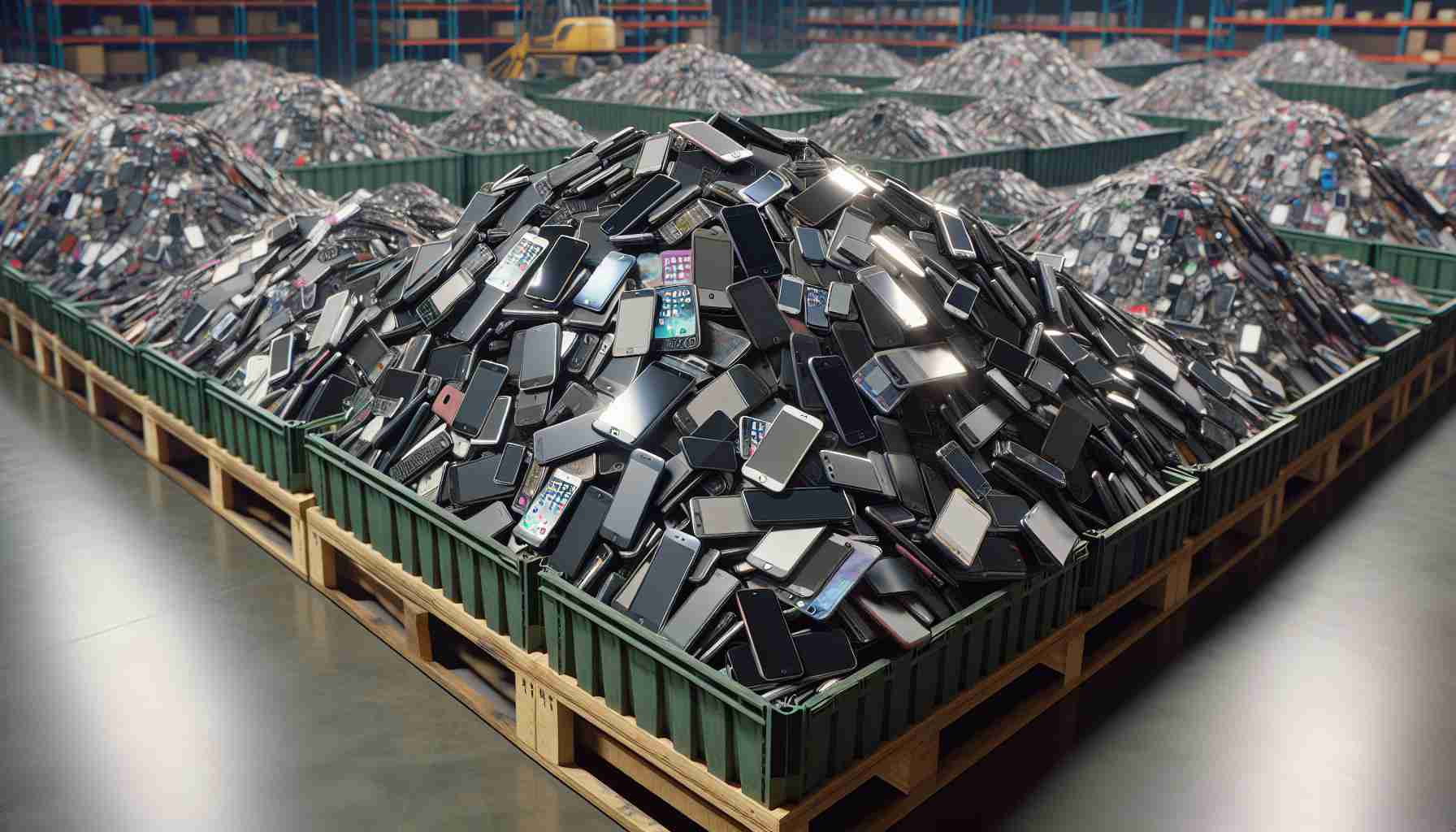An internal audit by Apple revealed a startling discrepancy in the number of iPhones intended for decommissioning, highlighting a case of nearly 100,000 functional iPhones that were earmarked for recycling yet apparently sold in the Chinese second-hand market. Instead of being dismantled as per the e-waste management policy, these devices were diverted from their intended fate by the recycling firm GEEP.
According to a comprehensive inquiry, Apple’s practice of product destruction has come under scrutiny. The tech giant, renowned for innovation and a stated commitment to environmental sustainability, found itself in a quandary over policies that potentially contradict its public eco-friendly image. The company’s approach to recycling involves rendering devices unusable, with an aim to prevent resold products from competing with newer models.
In a surprising turn of events, litigation initiated by Apple seems to have stalled, possibly to avoid the negative publicity that could result from acknowledging the destruction of workable technology. The lack of movement in legal proceedings against the recycling partner suggests a reticence on Apple’s part to engage in a battle that could tarnish its reputation as an environmental steward.
Insiders suggest that while Apple touts advancements in electronics recycling, real-world practices may not align with the environmentally conscious narrative. The unveiling of recycling robots such as Daisy, which succeeded her predecessor Liam, might be viewed as a step forward yet remains overshadowed by alleged mixed messages on sustainability.
Advocates for the right to repair, such as iFixit’s co-founder, argue vociferously against the wastage of repairable electronics. Amidst this controversy, Apple maintains that its products are created to last and benefit multiple users across their lifespan. The company continues to emphasize its eco-friendly disposal programs, despite concerns over the undermining of its environmental pledges.
Key Questions and Answers:
Q: What exactly is the controversy surrounding Apple and its recycling partner?
A: Apple has encountered issues with their recycling partner, GEEP, who has been accused of selling approximately 100,000 iPhones intended for recycling in the Chinese second-hand market rather than dismantling them.
Q: Why does Apple destroy functional products as part of their recycling policy?
A: Apple’s policy of destroying decommissioned products is intended to prevent the resale of older models that could compete with their new products and to ensure that materials are recycled in a responsible manner.
Q: What could be the reason behind the stalling of Apple’s litigation against the recycling firm?
A: One possible reason for the halted litigation could be Apple’s concern over negative publicity that may arise from pursuing legal action, given it could highlight the juxtaposition between its environmental messaging and the actual destruction of reusable technology.
Key Challenges and Controversies:
– Environmental Stewardship vs. Product Control: There’s a tension between Apple’s environmental goals and its desire to maintain control of its product ecosystem by limiting the availability of older, resold products.
– Sustainability Image: Allegations of mismanagement of products intended for recycling can damage Apple’s reputation as an environmentally responsible company.
– Right to Repair Movement: The case has invigorated the ‘right to repair’ advocates who argue against the waste created by destroying repairable and functional electronics.
Advantages and Disadvantages:
Advantages:
– Recycling of materials helps to reduce demand for new raw materials and is more environmentally friendly than sourcing entirely new components.
– Apple’s recycling policy and use of robotic technology to dismantle products can ensure proper handling and disposal of hazardous materials.
Disadvantages:
– Destroying functional products for recycling can be wasteful, particularly when many components could be reused or repurposed.
– The resale of functional, recycled devices on second-hand markets can undermine Apple’s recycling efforts and environmental commitments.
For additional and official information regarding Apple’s environmental policies and technology, the respective Apple official website can be visited.
The source of the article is from the blog j6simracing.com.br
